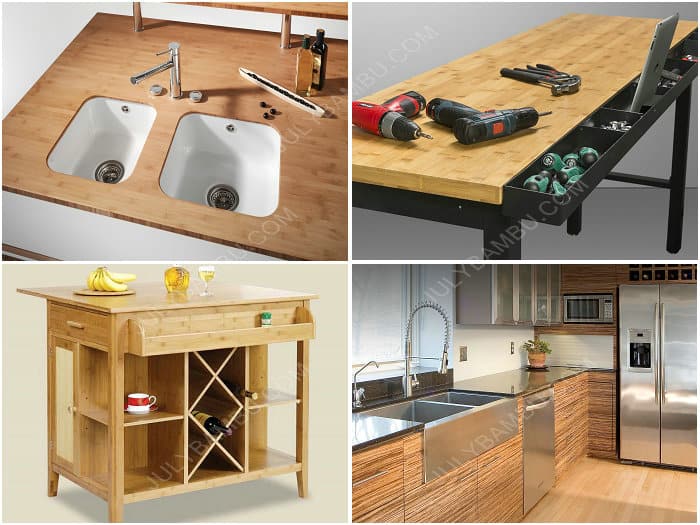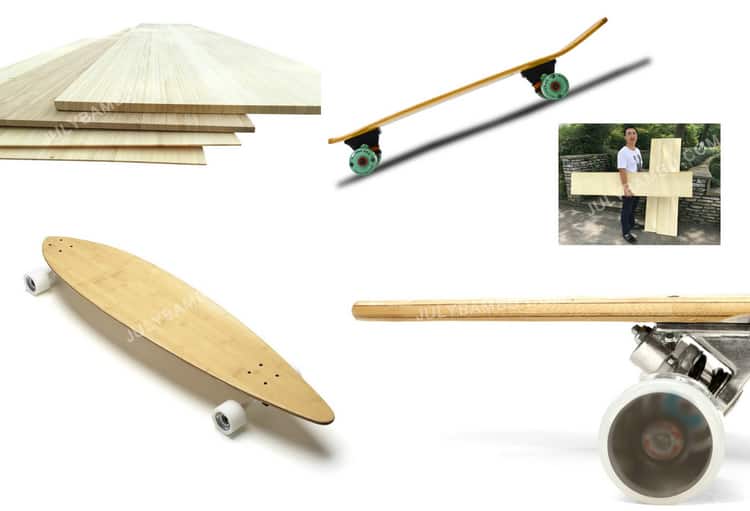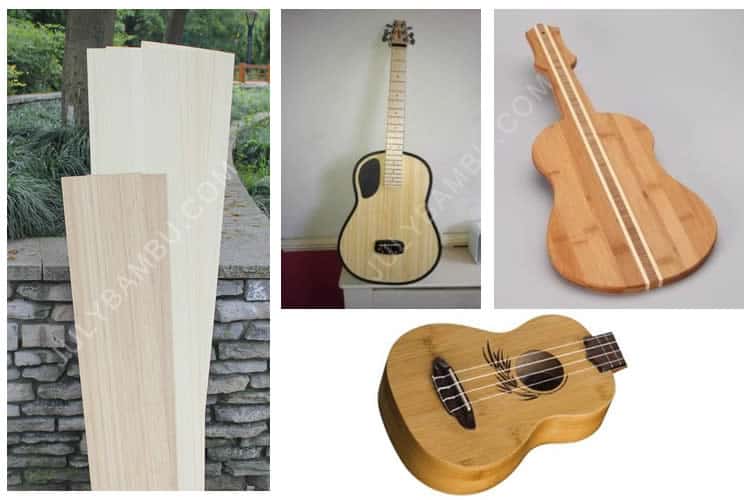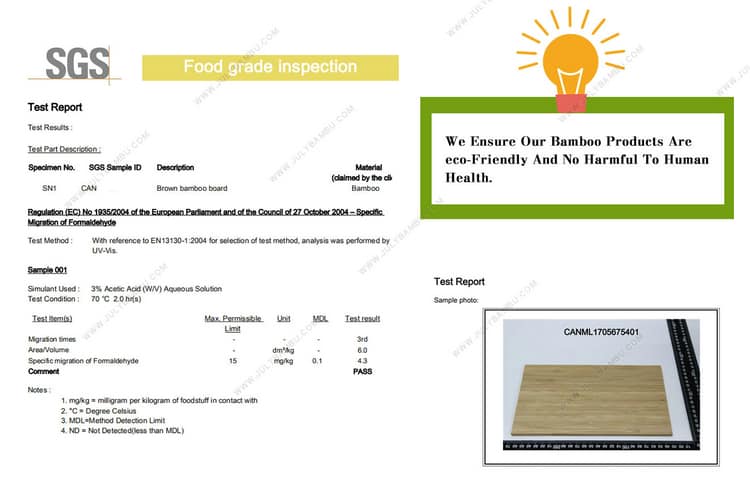[vc_row][vc_column css=”.vc_custom_1633962667896{padding-right: 200px !important;padding-left: 200px !important;}”][vc_column_text]For a long time, furniture industries have relied on tropical hardwood materials. But this resulted in increasing global temperature and loss of forest habitats.
Over 10 million hectares of trees are being cut down every year. It still can’t meet the high demand for tropical hardwoods.
Fortunately, people are starting to search for alternatives to hardwoods. Many are discovering materials that could provide the same building properties as hardwoods.
This wave of change paves the way for the rise of bamboo plywood products worldwide. And it keeps changing the world and building industry as we know it.
There has to be a trade-off between the benefits of using certain materials versus the other. It is vital to understand this when choosing suitable fabrics for your project.

You need to know the advantages and disadvantages of using bamboo plywood.
Well, there are a lot of benefits when choosing bamboo plywoods. Because of its natural properties, it is one of the best choices of building materials globally.
What is Bamboo Plywood?
Bamboo plywood is a combination of delicate layers of bamboo stacked on each other.

Bamboo grows in specific parts of the world. Different species of this plant grow in Asia, Australia, and the American continents.
JULYBAMBU Manufacturers process these plants into fine stripes and lie in layers. It is also laid in different layers, sanded, and laminated to create a ply.
It’s fantastic that these plants are one of the most robust building materials in the world.
Bamboo plywood can replace all the functionality of typical hardwood timber. In terms of utility and aesthetics, these plants are perfect for all kinds of projects.
Where can you use bamboo plywood?
You can use bamboo plywood in any place of regular plywood materials. Manufacturers produce them in a variety of ways to suit different kinds of projects. It is adaptable to all types of architecture because of its unique orientation.
Depending on your project, you can use bamboos with vertical or horizontal orientation.
You can use it for making bamboo countertops, interior walls, cabinets, and furniture. Bamboo can do anything that hardwoods can.

How does the bamboo industry help fight global warming?
If you choose bamboo, you are essentially contributing to the betterment of the world.
Bamboos can be harvested every year without needing to destroy a single plantation.
Bamboo manufacturers use an emission-free process, and no harmful waste materials can contaminate natural resources in bamboo making process. It’s an eco-friendly solution even in the manufacturing and distribution process.
Bamboo can trap more carbon footprints in the atmosphere compared to trees. It converts carbon dioxide to organic carbons and uses it to enrich its very own ecosystem.
The bamboo plantation also plays a significant role in soil and forest rehabilitation. In Asia, these plantations cultivate the lands and prevent land erosions. These also enrich the whole forest ecosystem.
Why is bamboo a sustainable resource?
Its fast growth rate makes it an excellent renewable resource. Also, bamboos are grassroots plants and can grow even after 20 to 45 harvests.

An average bamboo could grow to a mature size in just one to three years. You could harvest a single bamboo and put it into good use over 60 times compared to a single hardwood tree. See how much natural resources we could save by choosing bamboo products.
How strong are the materials built-in bamboo?
Bamboo ply is more robust than most hardwood. Bamboo’s tensile strength is 22 percent harder than steel. Compared to other typical hardwoods, bamboo is 25 percent harder than an oak tree. In comparison, it is 12 percent more durable than North American Maple.
In Bali, Indonesia, they are building five-story luxury buildings made entirely of bamboos. Even the roofing, foundations and small details are all made of bamboo. These only prove how solid and competent bamboo materials are.
Can I use bamboo plywood for laser cutting?
Laser cutting or engraving in bamboos has similar results, just like in any other wood. The cut line is uniform and cleans almost without any soot. It gives a strong wood appearance that works well with bamboo products’ design.
Laser cutting bamboo results in a beautiful finish and fine cuts. It’s because of bamboo’s very thin and natural wood grain density. It also gives a natural wood effect that is perfect for gift and aesthetic products.
Another fantastic feature of bamboo laser plywood is its natural color scheme. It comes with different shades of wood vibrancies. You could always choose from lighter shades to darker or brown to fit your projects.
Can you use bamboo for skate sports?
Bamboo is an excellent alternative for wooden longboards or skateboards. It makes the whole deck stronger and lighter.

It is naturally flexible. It allows the board to withstand a high amount of load on each side. So you don’t have to worry about any cracking on your board. It also smoothens out road vibrations and feels more comfortable to ride on.
Can you produce musical instruments using bamboo?
Using bamboo as a material for a musical instrument is common in tropical regions. Bamboo guitars had exceptional acoustic and aesthetic vibes that musicians love. It has a unique timbre and broad spectrum of low to high frequencies. It is also very stable with a lot of sustain, making it adaptable to different playing styles.

People are making wind instruments out of bamboo for thousands of years. It is part of the music culture and continuously innovates for younger generations.
Is bamboo suitable for kitchen cabinets?
Bamboo offers a fresh aesthetic look in your kitchen with a little bit of a modern aura.
The natural hue and color of bamboo can warm any kitchen room with neural lightings. It has a natural shine that signals cleanliness and class. Its distinct patterns create an aesthetic feel around your kitchen.
Bamboo is perfect for high-traffic areas, just like the kitchen, because it is durable and sturdy. You also do not have to worry about dirt and dish stains since bamboo plywoods are quick and easy to clean.
Most bamboo cabinets have a waterborne finish which makes them scratch-resistant.
You can cook easily, knowing your kitchen is free from health hazard compounds. Bamboo production does not use formaldehyde, unlike other hardwoods. Compounds like formaldehyde can cause allergic reactions to some.
How safe and hygienic is it to use bamboo products?
Bamboos are dense together, which minimizes bacteria from sipping into its structure. So bamboo is a perfect choice for kitchen countertops and various utensils.
Several studies show bamboo eliminates traces of bacteria on its surfaces. Scientists attribute this to bamboo’s natural anti-microbial properties.
Can I use bamboo if I have allergies?
Bamboo surfaces are hard and distinct.
It means that dust, dirt, and even animal hairs can easily be seen and clean up right away.
Manufacturers of bamboo plywood often do not use VOCs (Volatile Organic Compound). These compounds can trigger an allergic reaction to some. If you are allergic to these kinds of chemicals, always check before buying wood products.

Can bamboo plywood be used as an exterior home improvement project?
Unfortunately, bamboo materials are not suitable for exterior home improvements. Bamboo plywoods are not treated with chemicals to prevent deterioration due to extreme weather.
Be sure to use polyurethane to prevent deterioration if you plan to use them for the exterior.
Is bamboo plywood scratch and water-resistant?
Bamboo offers better water resistance than most hardwoods, but it is still not immune to water damage.
It takes a prolonged period of exposure to a large amount of water for damage to occur. So be sure to wipe up spillage as soon as possible to preserve the quality of bamboo plywoods.
Bamboo is not scratch-resistant, just like any other wood material. However, due to its hardness, it is three times dent-resistance compared to different types of hardwood. It takes a lot of force to dent single bamboo plywood.
Does bamboo plywood warp?
Like any other wood material, bamboo plywood is prone to warping if stored in very low or very high humidity areas. Uneven moisture content can cause deformity in its structures.
Extreme humidity and hot liquid spillages are the common causes of plywood warping. Hot coffees and soup spillage are the most common cause of warping in a household setting. It is best to keep your bamboo countertops clean and dry to prevent damage.
Conclusion:
Bamboo is an excellent alternative to tropical hardwood. Due to its durability and its natural aesthetic feel, it can match any home design.
Its unique properties make it an eco-friendly and sustainable choice for a wide variety of projects.
By choosing bamboo, you are contributing to lessening the destruction of native forests.
However, like any other wood material, bamboo is also prone to damage from humidity and harsh temperatures when not maintained correctly. For these reasons, bamboos are not suitable for external use.[/vc_column_text][/vc_column][/vc_row]


